| 1 YEAR | I semester | 6 CFU |
| (from ICT) | |
| Ernestina CIANCA | A.Y. 2023-24
📑
|
| Code: 8039522 SSD: ING-INF/03 |

| 1 YEAR | I semester | 6 CFU |
| (from ICT) | |
| Ernestina CIANCA | A.Y. 2023-24
Teaching programs (Schede d’Insegnamento-GOMP)📑
|
| Code: 8039522 SSD: ING-INF/03 |
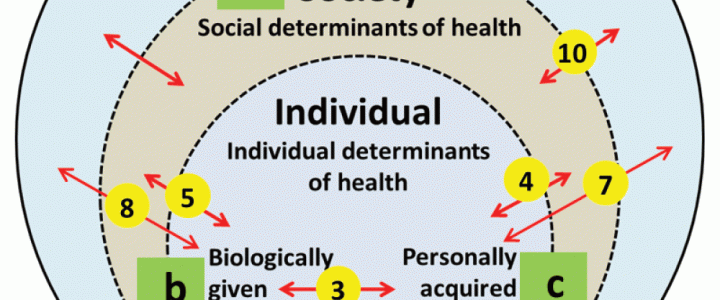
| 2 YEAR | II semester | 6 CFU |
| Patrizio Tomei (4cfu) Eugenio Martinelli (2cfu) |
A.Y. 2023-24 |
| SANTOSUOSSO Giovanni Luca | A.Y. 2024-25 not be activated |
| A.Y. 2025-26 (new name “Identification and Neural Networks” |
|
| Didatticaweb | |
| Code: 80300088 SSD: ING-INF/04 |
Pre-requirement: The basics of systems theory and control are required.
LEARNING OUTCOMES: The course aims to provide the basic techniques for the design of predictors, filters, and adaptive controllers.
KNOWLEDGE AND UNDERSTANDING: Students must obtain a detailed understanding of design techniques with the help of MATLAB-SIMULINK to solve industrial problems of adaptive filtering, adaptive prediction, and adaptive control.
APPLYING KNOWLEDGE AND UNDERSTANDING: Students must be able to apply the project techniques learned in the course even in different industrial situations than those examined in the various phases of the course.
MAKING JUDGEMENTS: Students must be able to apply the appropriate design technique to the specific cases examined, choosing the most effective algorithms.
COMMUNICATION SKILLS: Students must be able to communicate using the terminology used for filtering, prediction, and adaptive control. They must also be able to provide logical and progressive exposures starting from the basics, from structural properties, from modeling to the design of algorithms, without requiring particular prerequisites. Students are believed to be able to understand the main results of a technical publication on the course topics. Guided individual projects (which include the use of Matlab-Simulink) require assiduous participation and exchange of ideas.
LEARNING SKILLS: Students must be able to identify the appropriate techniques and algorithms in real cases that arise in industrial applications. Furthermore, it is believed that students have the ability to modify the algorithms learned during the course in order to adapt them to particular situations under consideration.
Texts
Adaptive Filtering Prediction and Control, Graham C. Goodwin, Kwai Sang Sin, Dover Publications, 2009.
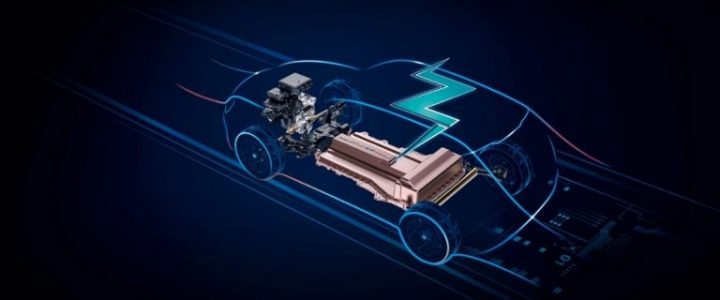
| 2 YEAR | II semester | 6 CFU |
| Cristiano M. Verrelli | A.Y. 2021-22 to A.Y. 2024-25 (Control of Electrical Machines (B-C-E)) |
|
|
A.Y. 2025-26 (new name CONTROL OF ELECTRICAL MOTORS AND VEHICLES ) |
| ✅ All syllabi📑
Code:8039782 |
LEARNING OUTCOMES: The course aims to provide a unified exposition of the most important steps and concerns in mathematical modeling and design of estimation and control algorithms for electrical machines such as:
– permanent magnet synchronous motors
– permanent magnet stepper motors
– synchronous motors with damping windings
– induction (asynchronous) motors
– synchronous generators.
KNOWLEDGE AND UNDERSTANDING: Students should be able to gain profound insight into the fundamental mathematical modeling and control design techniques for electrical machines, which are of interest and value not only to engineers engaged in the control of electric machines but also to a broader audience interested in (nonlinear) control design.
APPLYING KNOWLEDGE AND UNDERSTANDING: Students should be able to deeply understand mathematical modeling through nonlinear differential equations, stability and nonlinear control theory concepts, and design of (nonlinear) adaptive controls containing parameter estimation algorithms (important for applications). Students should be able to apply the related knowledge to learning control of robotic manipulators and cruise/yaw rate control of electric vehicles.
MAKING JUDGEMENTS: Students should be able to identify the specific design scenario and apply the most suitable techniques. Students should be able to compare the effectiveness of different controls while analyzing theoretical/experimental advantages and drawbacks.
COMMUNICATION SKILLS: Students should be able to use a single notation and modern (nonlinear) control terminology. Students should be able to exhibit a logical and progressive exposition starting from basic assumptions, structural properties, modeling, control, and estimation algorithms. Students are also expected to be able to read and capture the main results of a technical paper concerning the topics of the course, as well as to effectively communicate in a precise and clear way the content of the course. Tutor-guided individual projects (including Maple and Matlab-Simulink computer simulations and lab visits) invite intensive participation and exchanging ideas.
LEARNING SKILLS: Being enough skilled in the specific field to undertake the following studies characterized by a high degree of autonomy.
TEXTS
R. Marino, P. Tomei, C.M. Verrelli, Induction Motor Control Design, Springer, 2010.
Latest journal papers.
VERIFICATION OF THE KNOWLEDGE
Verify the knowledge and skills acquired by the student on the topics covered by the program. The intermediate exams, the final written tests, and the oral exam will consist of questions related to the topics covered by the program of the course. The questions are aimed at ascertaining the student’s knowledge and his/her reasoning skills in making logical connections between the different topics.
The final vote of the exam is expressed out of thirty and will be obtained through the following graduation system:
Not pass: important deficiencies in the knowledge and in the understanding of the topics; limited capacity for analysis and synthesis, frequent mistakes and limited critical and judgmental capacity, inconsistent reasoning, inappropriate language.
18-21: the student has acquired the basic concepts of the discipline and has an analytical capacity that comes out only with the help of the teacher. The way of speaking and the language used are almost correct, though not precise.
22-25: the student has acquired the basic concepts of the discipline in a discrete way; he/she knows how to discuss the various topics; he/she has an autonomous analysis capacity while adopting a correct language.
26-29: the student has a well-structured knowledge base. He/She is able to independently adopt a correct logical reasoning; notations and technical language are correct.
30 and 30 cum laude: the student has a complete and in-depth knowledge base. The cultural references are rich and up-to-date while being expressed by means of brilliant technical language.
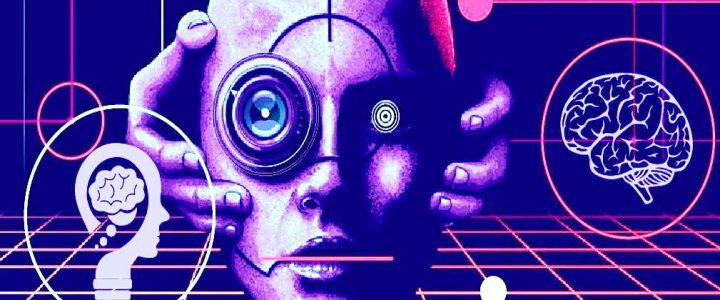
| 2 YEAR | II semester | 6 CFU |
| Arianna Mencattini | A.Y. 2021-22
A.Y. 2022-23 |
| A.Y. 2023-24 Measurement Systems for Mechatronics
A.Y. 2024-25: Computer Vision – program |
|
| Code: 8039787 SSD: ING/INF/07 |
LEARNING OUTCOMES: Learning basic concepts in digital image processing and analysis as a novel measurement system in biomedical fields. The main algorithms will be illustrated particularly devoted to the image medical fields.
KNOWLEDGE AND UNDERSTANDING: The student acquires knowledge related to the possibility to use an image analysis platform to monitor the dynamics of a given phenomenon and to extract quantitative information from digital images such as object localization and tracking in digital videos.
APPLYING KNOWLEDGE AND UNDERSTANDING: The student acquires the capability to implement the algorithms in Matlab through dedicated lessons during the course with the aim of being able to autonomously develop new codes for the solution of specific problems in different application fields.
MAKING JUDGEMENTS: :
The student must be able to integrate the basic knowledge provided with those deriving from the other courses such as probability, signal theory, and pattern recognition. some fundamentals of measurement systems as well as basic metrological definitions will be provided in support of background knowledge.
COMMUNICATION SKILLS:
The student solves a written test and develops a project in Matlab that illustrates during the oral exam. The project can be done in a group to demonstrate working group capabilities.
LEARNING SKILLS:
Students will be able to read and understand scientific papers and books in English and also to deepen some topics. In some cases, students will develop also experimental tests with time-lapse microscopy acquisition in the department laboratory.
SYLLABUS:
Fundamentals of metrology. Basic definitions: resolution, accuracy, precision, reproducibility, and their impact over an image based measurement system. Image processing introduction. Image representation. Spatial and pixel resolution. Image restoration. Deconvolution. Deblurring. Image quality assessment. Image enhancement. Image filtering for smoothing and sharpening. Image segmentation: pixel based (otsu method), edge based, region based (region growing), model based (active contour, Hough transform), semantic segmentation. Morphological operators. Object recognition and image classification. Case study: defects detection, object tracking in biology, computer assisted diagnosis, facial expression in human computer interface.
Matlab exercises.

| 2 YEAR | 1 semester | 12 CFU |
| Patrick LONGHI (3cfu) Giancarlo ORENGO (3cfu) Gian Carlo CARDARILLI (4cfu) Luca DI NUNZIO (2cfu) |
since A.Y. 2019-20 |
| M-5519 – ELECTRONICS OF IOT (6cfu) M-5520 – DESIGN OF EMBEDDED SYSTEMS FOR MECHATRONICS (6cfu) |
|
| Code: 8039795 SSD: ING-INF/01 |
EDUCATIONAL OBJECTIVES:
The objectives of the course are:
1) to provide the tools to carry out a radio link assessment in a real application context.
2) learn the fundamental parameters of the antennas used in IoT applications
3) provide the tools to interpret the electrical diagram of the RF front end of a typical trans receiver.
KNOWLEDGE AND UNDERSTANDING:
Provide the fundamental tools to understand the most advanced and updated content from publications, magazines, forums, blogs, etc., to always be updated on the state of the art.
ABILITY TO APPLY KNOWLEDGE AND UNDERSTANDING:
Practical radio link budget, electronic noise evaluation on receiver behavior, installation effects of the antennas, understanding of key parameters of commonly used antennas in the targeted scenario, analysis of an RF transceiver block diagram
AUTONOMY OF JUDGMENT:
With the enormous amount of information that is available today to developers of IoT applications, the course seeks to develop the ability of the student to select the highest quality and most validated content.
COMMUNICATION SKILLS:
The final test is based on an oral exam in which the student illustrates a part of the module
LEARNING ABILITY:
The course aims to develop in the student the ability to independently learn new and constantly updated content because the knowledge acquired today soon becomes obsolete.
SYLLABUS:
(Longhi):
Introduction to radiating elements and their key parameters.
Ideal and practical link budget.
The effect of noise in electronic receivers, figures of merit and mathematical modelling. Receiver G/T.
Practical aspects of IoT RF systems
RFID
Radiating elements key parameters, gain, directivity, HPBW, nulls, radiation pattern, polarization, and input impedance. Some practical cases: the mono/di-pole family, microstrip antennas, parabolic reflector, wearables
Introduction to RF transceiver systems and key-components (switches, HPA, LNA, mixers, frequency generators).
(G.Orengo):
Summary of Digital Electronics: digital encoding of information, binary (fixed and floating point), hexadecimal and ASCII; operators and main logic circuits, registers and memories, programmable devices. Prototyping boards for IoT (Arduino, Rasberry), Systems on Chip (SoC), architecture of a microcontroller, description of the Arduino Uno board. Programming languages (assembly, compiled, interpreted), structure of an Arduino sketch (libraries, setups, loops, functions, interrupts), programming elements in C (variables, math and logical operations, cycles, conditional statements). Use of digital and analog I/O ports (A/D conversion, PWM output). Synchronous and asynchronous serial communication modes, wired (USB) and wireless with Bluetooth, RF and WiFi modules. Remote control of electronic modules (sensors, dc stepper and servo motors, LED/LCD displays etc.) from portable devices (Windows, IoS), through applications developed in Processing and Python, and mobile (Android), through Apps developed with the MIT App Inventor platform. Internet protocols for device local/remote control through WiFi modules connected as access points/clients to web platforms or public/private cloud servers controlled by laptops and/or mobile devices.
(G.Cardarilli):
– Introduction to the Internet of Things (IoT) and embedded systems
– Wireless and mobile communications
– The Sensors
– Low power processing
– IoT and machine learning applications
– Future developments in the field of IoT and embedded systems
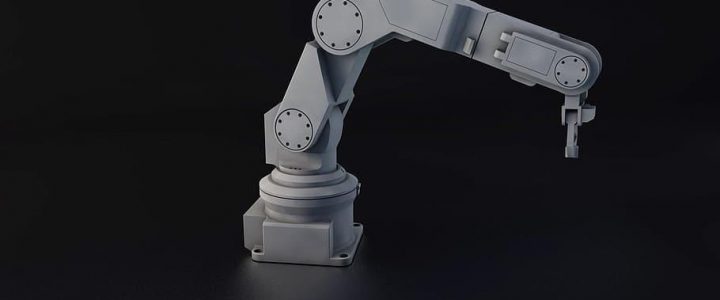
| 2 YEAR |
1 semester | 9 CFU |
| Riccardo MARINO | Since 2019-20 |
All study programmes and syllabi 
Code: 8039823 |
LEARNING OUTCOMES:
Ability to understand scientific papers on the control of mechanical systems
KNOWLEDGE AND UNDERSTANDING:
Knowledge of dynamic modeling of mechanical systems. Knowledge of basic feedback control techniques for single input single output systems and of decoupling techniques for multi input multi output nonlinear systems
APPLYING KNOWLEDGE AND UNDERSTANDING:
Ability to simulate using Matlab Simulink complex controlled mechanical systems
MAKING JUDGEMENTS:
Ability to evaluate stability, robustness, and performance of a control system
COMMUNICATION SKILLS: Ability to present and discuss an autonomous design project
LEARNING SKILLS: Ability to fully understand a scientific paper on the control of mechanical systems
SYLLABUS:
BASIC CONTROL TOOLS
Bounded- input bounded- output linear systems. Pole placement theorem for controllable and observable linear systems. Luenberger observers for observable systems. Design of dynamic compensators for linear systems. Integral feedback control to reject constant disturbances. PID control. System inverses for minimum phase linear systems. The combination of feedback and feedforward control actions.
ADVANCED CONTROL TOOLS
Linear approximations of nonlinear control systems about operating conditions. The definition of region of attraction for an operating condition. Output feedback compensators with integral actions to control nonlinear systems about a given operating condition. Liapunov matrix equations to determine quadratic Liapunov functions and assess the region of attraction. The definition of the sensitivity transfer function and its properties. The gang of four: sensitivity, complementary sensitivity, load sensitivity and noise sensitivity functions. How to determine the robustness of a control loop using the gang of four functions. Bode’s integral formula and the limitations imposed by unstable open loop poles. Youla parametrization to design stable compensation. Kalman filters, Riccati equations and robust control design.
CONTROL DESIGN FOR MULTIVARIABLE NONLINEAR SYSTEMS
Relative degree for a single input single output nonlinear system. State feedback control design for input-output linearization. State feedback linearization when the relative degree is equal to the state space dimension. The definition of nonlinear inverse systems. Relative degrees or decoupling indices for multivariable (multi-input, multi-output) nonlinear systems. The definition of the decoupling matrix. State feedback control design for input-output linearization when the decoupling matrix is full rank using the Penrose pseudoinverse. State feedback linearization when the sum of relative degrees is equal to the state space dimension and the decoupling matrix is full rank.
CASE STUDIES OF NONLINEAR MECHANICAL CONTROL SYSTEMS
Control of bycicles, robots, vehicles and aircrafts

| 1 YEAR | I semester | 6 CFU |
| Marco Re |
since A.Y. 2021-25 |
| Vittorio Colombo | A.Y. 2025-26
Teaching programs (Schede d’Insegnamento-GOMP)📑
|
| Didatticaweb
Code: 80300061 |
| II additional window: in February |
(*You can also apply if you must graduate in the October session.)
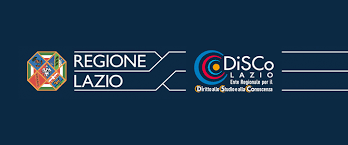
Disclaimer: This guide has been created by Tor Vergata with the purpose of supporting first-year international students in filling up DiscoLazio application because modules are written in Italian only by the Regional Body. Students will find a screenshot of the form they have to fill out with the one-to-one fields translation below. Tor Vergata is not responsible for any mistake made by the students who are pleased to carefully read the Call and related documents before starting the application.
deadline 20/07/2022

A traditional event dedicated to welcoming and orientation activities for all new students arriving at Tor Vergata University of Rome.
We are very happy to announce that the Students Welcome 2022 will be held in presence!
The Students Welcome is a traditional event taking place in the first weeks of the new academic year (5 – 23 September 2022) dedicated to welcoming and orientation activities for all new students arriving at Tor Vergata University of Rome.